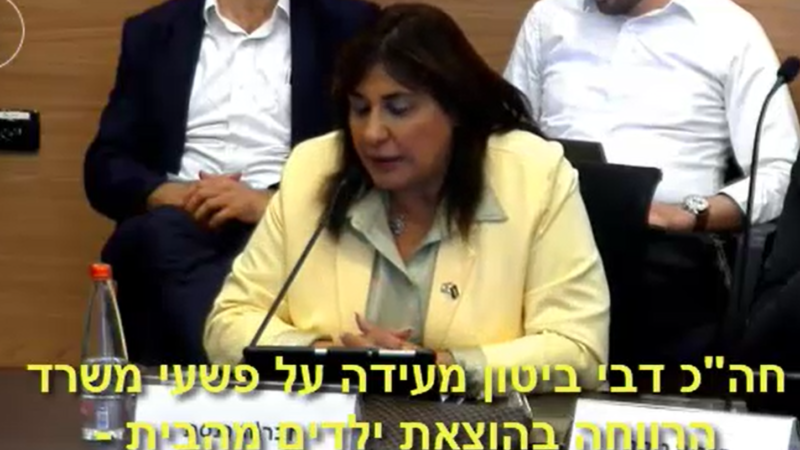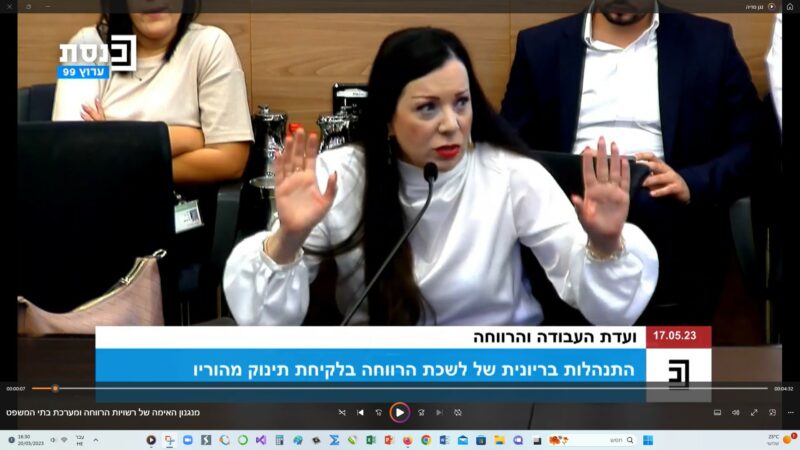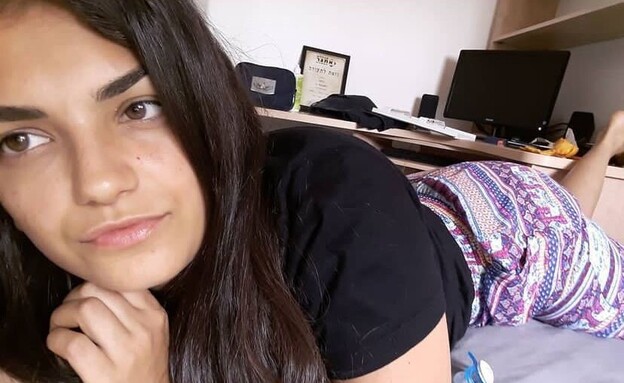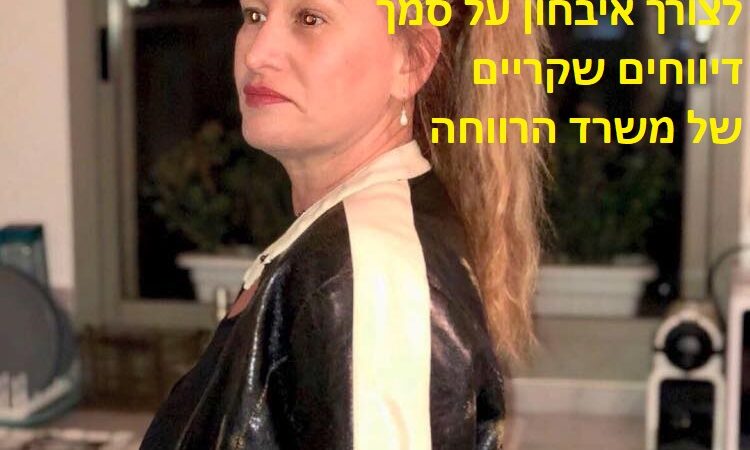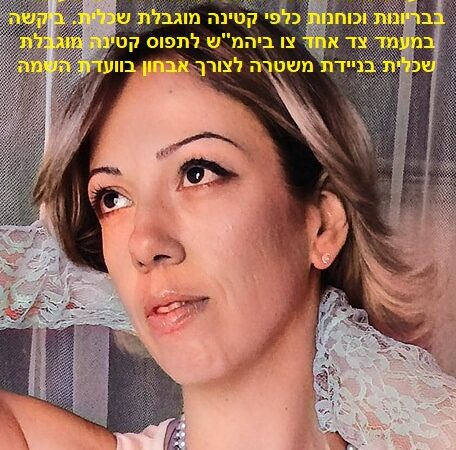Keren is 28. Six years ago she married Idan, now 33. Together they run an Orr Shalom house in Be’er Sheva, home to their two biological children and the ten children referred to them by the organisation. The children in the pictures are Keren’s own.
Orr Shalom cares for around 1,400 Israeli children in a variety of homes and institutions. The organisation’s flagship initiative is its network of 21 Family Group Homes, of which three are located in Be’er Sheva.
Family Group Homes provide a stable environment for children aged six to 18 who have been removed from their birth families owing to neglect, abuse or tragedy. Each home is run by a married couple who raise the children entrusted to them alongside their own biological families.
JNF UK is helping Orr Shalom renovate and refurbish the three Family Group Homes in Be’er Sheva, replacing old appliances and repairing wear and tear.
We spoke with Keren earlier this week and asked her about her work with Orr Shalom.
“We have two wonderful boys of our own – the older is four and the younger is two. We care for another ten Orr Shalom children ranging in age from seven to 16-and-a-half. We feel like one big family.”
“I was born and grew up in Tel Aviv and Idan was born and grew up in Be’er Sheva. I met Idan when I finished my service in the IDF. At that time I was studying education and was looking for a job as a teacher. I started work in one of the Orr Shalom homes in Be’er Sheva and was there for a year. I fell in love with the children and with the house mother – I was so touched to see how much she cared for the children.”
“I decided that I also wanted to follow her example and look after children at risk. At the time my husband was a counsellor in a dormitory and he would come and visit me in the home, he also fell in love with Orr Shalom.”
“We decided that we wanted to take on this project for our life together and become house parents.”
“Some children come because they have suffered abuse from their biological parents and there are some children who have been neglected by their parents and did not have even their most basic needs taken care of.”
“Many of the children who come to live with us don’t know how to do basic things like how to eat with a knife and fork or shower themselves.”
“Sometimes kids come to us who don’t know how to accept a hug and don’t understand why we want to hold them or ask them how they are feeling. We teach the kids about love. We teach them that not every adult wants to hurt them. We need them to learn that adults can be people who can help and support them and that we are with them through both the good and the painful times, we show them that we will never give up on them.”
“As a house mother I have to create good experiences for the children. When a child who initially hated contact comes and gives me a hug, these are the moments that give me strength to continue in my job. Sometimes one of the children has a nightmare and comes to me in the middle of the night to be comforted, I sit next to them and sing to them until they fall asleep. This is an amazing feeling – a child is sleeping better because of me.”
“Every child arrives with their own past and traumas. Some of the children have had very difficult stories and yet we try as much as possible to treat them as normal kids. They go to regular schools and take part in after-school activities. We provide therapy to help them deal with past traumas. My personal challenge is to find the balance between relating to them as normal children while remaining aware that each child carries with him his own difficult past.”
“Sometimes we get children aged ten, say, who have never celebrated a birthday. We hold a party for them and invite their biological family and friends, we bake a cake together and organize a party. They are so excited. This excitement is contagious and there’s rarely a dry eye in the house.”
“It’s important to know that apart from the highlights and the difficulties there is also the routine of daily life – in our home every meal is like a meal you have on chag – we all sit around a large table – children and staff together and talk about each child’s day and laugh over the different things that have happened. We listen to music together, play gets, watch TV, dance and sing. There’s a lot of energy in the house.”

 :
: